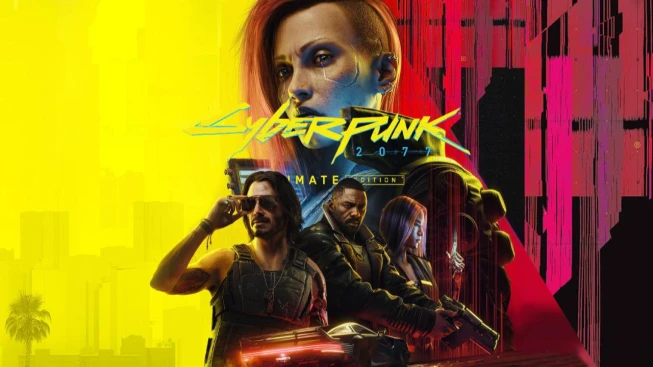The 2025 edition of Cyberpunk 2077 reinvents Night City with redesigned mechanics, offering players a drastically reimagined journey through its neon-lit dystopia. Whether exploring for the first time or revisiting after updates, this primer covers essential strategies for thriving in its evolved environment.
Customize your mercenary V through redesigned character creation, selecting backgrounds that unlock unique narrative opportunities. Attribute allocation now encourages tactical planning—delay initial investments to evaluate skill trees thoroughly. Cosmetic alterations remain flexible via Ripperdocs and boutiques, ensuring style evolves alongside your gameplay.

Launch Preferences and World Exploration
Choose between starting fresh or diving into the Phantom Liberty DLC narrative. Newcomers should prioritize the core campaign to experience foundational world-building. Post-introduction, navigate carefully—high-level adversaries marked by skull icons demand strategic avoidance until properly equipped.




Urban Zones Overview
Key districts demand tailored approaches:
Pacifica/Dogtown: Voodoo Boys territory with expansion-exclusive missions
Westbrook: Luxury districts housing corporate elites
Watson: Gang-controlled industrial sector
Santo Domingo: Sixth Street’s industrial stronghold
Haywood: Valentinos gang domain near civic infrastructure
City Center: Corporate headquarters complex
Badlands: Nomad homelands beyond city limits
Unlock Dogtown through Phantom Liberty content, which introduces narrative branches impacting multiple endings.




Mission Diversity
Central quests (black markers) drive the primary narrative. Yellow markers denote optional stories enriching world lore. Fixer assignments range from infiltration ops to high-risk extractions, while vehicle theft contracts appear with expiration timers. Cyberpsycho encounters allow moral choices regarding Regina’s research objectives.




Character Development Systems
Five core attributes govern playstyles: Brainpower (hacking), Engineering (tech), Strength (combat), Agility (movement), and Stealth. Perk tiers unlock at 4/9/15/20 points, with vehicular combat abilities distributed across trees. Skill progression occurs through action usage, encouraging specialization through consistent playstyles.




Augmentation Strategies
Ripperdocs offer neural, ocular, and skeletal enhancements including temporal manipulation tech. The Edgerunner perk enables risky overclocking for augmented capabilities. Armor integration now resides in cybernetic implants rather than clothing, with transmog preserving cosmetic preferences.




Armament Dynamics
Four damage types (corrosive, plasma, kinetic, incendiary) interact with enemy defenses. Weapon classes feature distinct mechanics: ricochet ballistics, wall penetration, and smart targeting. Crafting eliminates perk requirements, prioritizing material gathering from defeated enemies.




Enhanced Hacking Mechanics
Breach Protocol’s grid puzzles decrease intrusion costs while enabling system weaknesses. RAM management dictates quickhack frequency, with health-for-ram tradeoffs through Overclock mechanics. Neutralizing enemy Netrunners disrupts counter-hacking attempts.
Law Enforcement Escalation
Criminal actions trigger response forces that escalate from patrol units to MaxTac squads. Territorial jurisdictions determine responding factions: NCPD in urban zones, Militech in Badlands. Evasion tactics include hiding or utilizing identity-masking cyberware.




Vehicular Engagement
Drive-by combat incorporates precision aiming for tire/component targeting. Vehicle handling varies significantly—experiment to find preferred models. The Ghost Town quest provides a free high-performance vehicle, while perk investments enable vehicular hacking and defensive upgrades.




Narrative Complexity
Branching dialogue features background-specific options and time-sensitive choices with lasting repercussions. Environmental storytelling through digital correspondence and data logs enhances world immersion, often revealing hidden opportunities.

